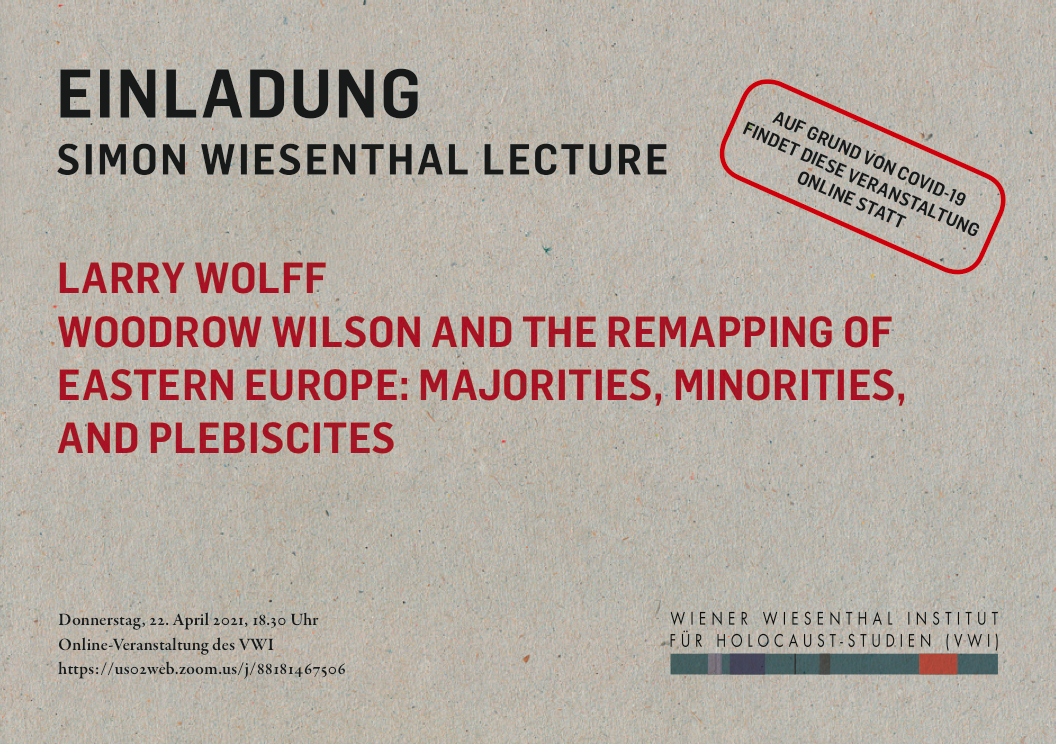Simon Wiesenthal Lectures
The Simon Wiesenthal lecture series takes place regularly every six to eight weeks and aims to present the latest research findings on the Holocaust to both a professional and a broader audience. They take into account the impressive spectrum of this discipline, the numerous questions and issues from empirical-analytical historiography to topics of cultural studies and involve young scholars as well as established academics.
Since 2007, when the Vienna Wiesenthal Institute for Holocaust Studies (VWI) was still being established, the lecture series – at that time in cooperation with the Documentation Centre of Austrian Resistance (DÖW) and the Institute of Contemporary History at the University of Vienna– has developed into the flagship of the VWI's outreach activities as a supporting element in the communication of recent academic findings in the field of Holocaust research and Holocaust and genocide studies.
For over a decade, the Austrian State Archives generously offered shelter to the Simon Wiesenthal Lectures in the roof foyer of the Haus-, Hof- und Staatsarchiv. During the challenging years of the pandemic, the lectures were held online. From autumn 2022, in order to reach out to further audiences, a new cooperation partner was found in the Wien Museum. Until the reopening of the main location at Karlsplatz, the SWL will take place at MUSA, Felderstraße 6-8, next to the Vienna City Hall.
| Simon Wiesenthal Lecture | |||
| Larry Wolff: Woodrow Wilson and the Remapping of Eastern Europe. Majorities, Minorities, and Plebiscites | |||
Thursday, 22. April 2021, 18:30 - 20:00 Die Veranstaltung findet online statt: https://us02web.zoom.us/j/88181467506
|
|||
This lecture will address some of the complications that followed from Wilson’s articulation of the principle of national self-determination for the remapping of Eastern Europe. Wilson, who never visited Eastern Europe and barely thought about the region before1917, educated himself very quickly in anticipation of the peace conference, and his “mental mapping” of Eastern Europe underwent important developments as he confronted the basic issues of the peace conference. Notably, the sense that national self-determination could be exercised by national majorities produced as a corollary a novel conception of minority rights, while an initial confidence in plebiscites as an instrument of national self-determination gave way to increasing anxieties about how to calculate majorities and minorities. The presence of Jewish populations in Eastern Europe played an important part in the formulation of political ideas about majorities and minorities. Larry Wolff is the Julius Silver Professor of European History at New York University, the executive director of the NYU Remarque Institute, and the co-director of NYU Florence at Villa La Pietra. His books include The Singing Turk: Ottoman Power and Operatic Emotions on the European Stage from the Siege of Vienna to the Age of Napoleon (2016), The Idea of Galicia: History and Fantasy in Habsburg Political Culture (2010), Inventing Eastern Europe: The Map of Civilization the Mind of the Enlightenment (1994), and Postcards from the End of the World: Child Abuse in Freud’s Vienna (1988). His newest book is Woodrow Wilson and the Reimagining of Eastern Europe (2020). He is a member of the American Academy of Arts and Sciences. https://us02web.zoom.us/j/88181467506 Mit der Teilnahme an dieser Veranstaltung stimmen Sie der Veröffentlichung von Fotos, Video- und Audioaufzeichnungen zu, die im Rahmen der Veranstaltung entstehen. |
|||








